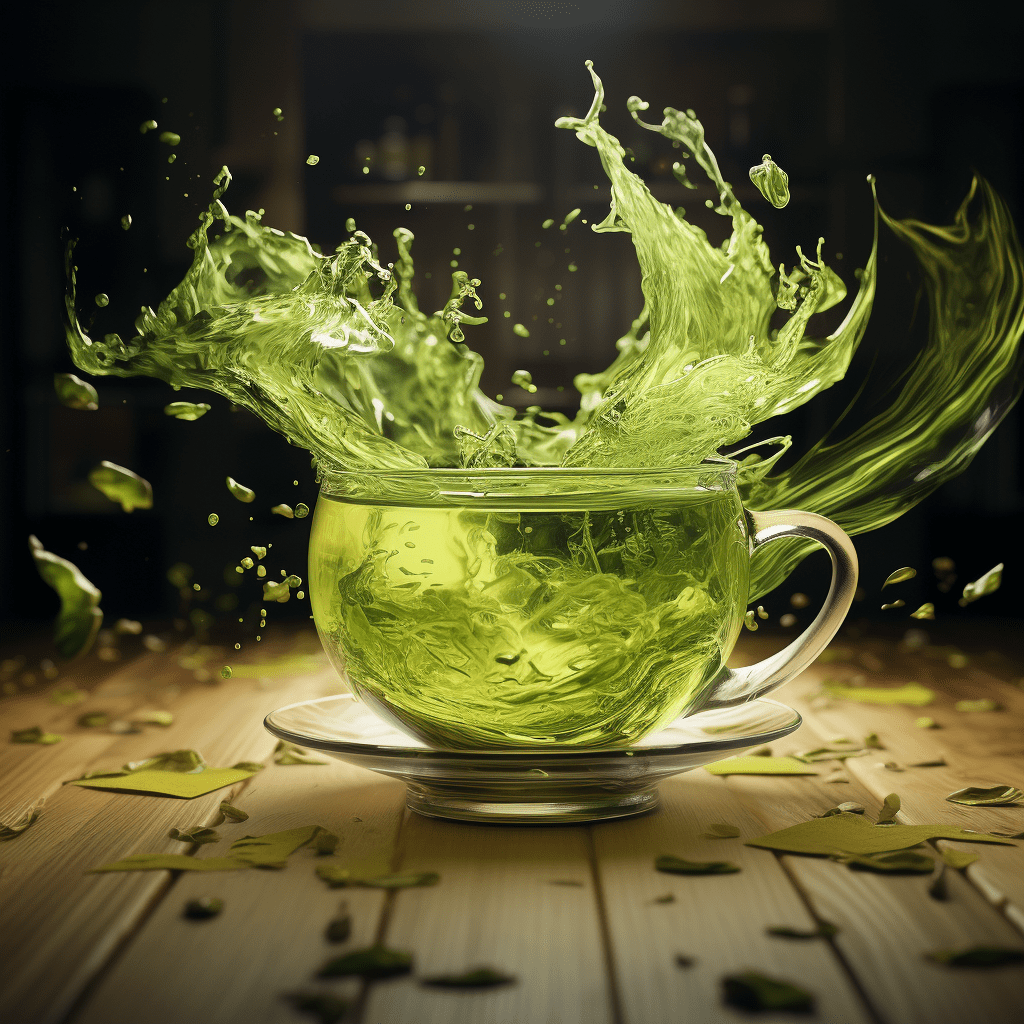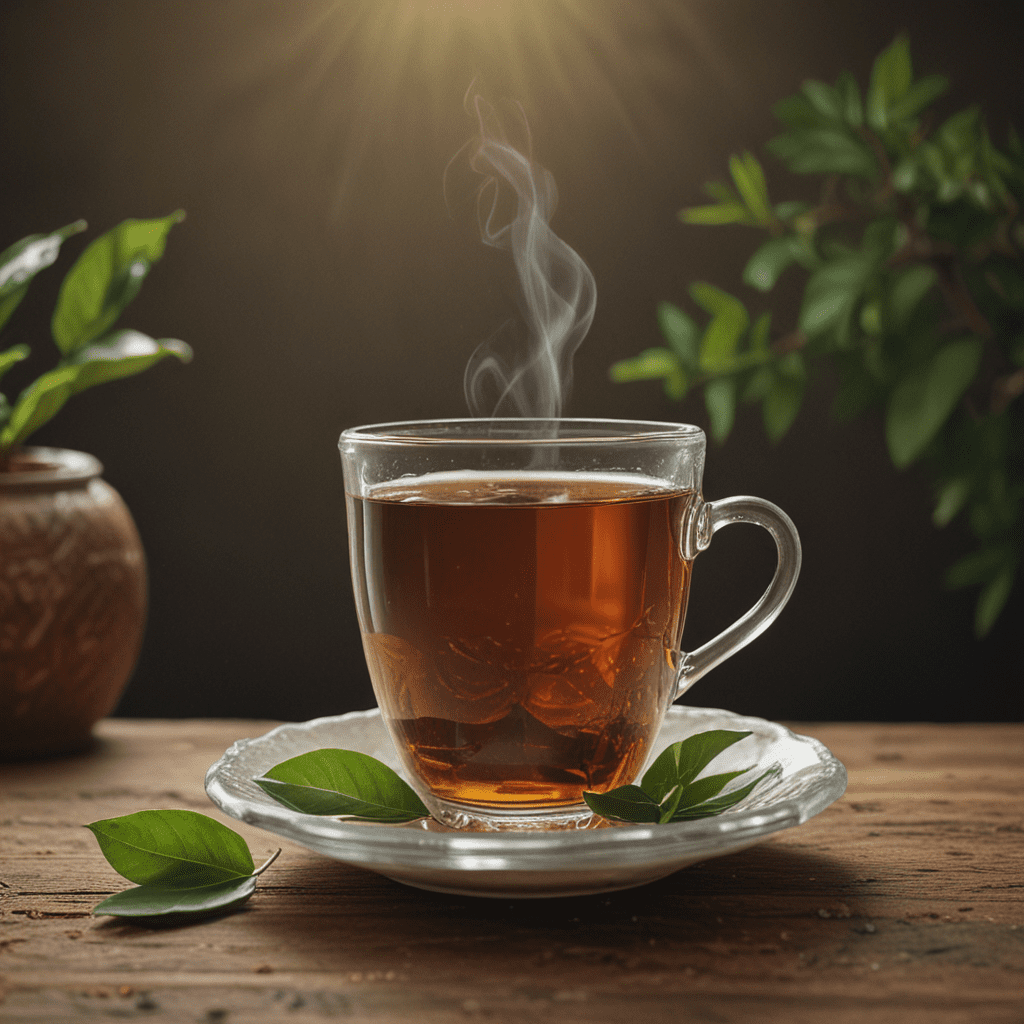
What Happens if You Steep Green Tea Too Long
Green tea is a popular beverage known for its numerous health benefits and delicate flavor. However, like any other type of tea, steeping green tea for too long can have negative effects on its taste and nutritional properties. In this article, we will explore what happens when you steep green tea for an extended period and provide some tips on how to avoid over-steeping.
The Impact on Flavor
Green tea is known for its fresh and grassy flavor profile. When steeped properly, it offers a refreshing and slightly astringent taste that many tea enthusiasts enjoy. However, if green tea is steeped for too long, the flavor can become overly bitter and unpleasant. The longer the steeping time, the more tannins are released, which results in a more astringent and bitter taste.
Over-steeping can also lead to a loss of the tea’s delicate aroma. Green tea contains volatile compounds that contribute to its unique scent, but prolonged steeping can cause these compounds to evaporate. As a result, the tea may taste flat and lack the characteristic fragrance that makes green tea so appealing.
The Impact on Nutritional Value
Green tea is renowned for its rich antioxidant content, which offers various health benefits. Antioxidants neutralize harmful free radicals in the body, reduce inflammation, and support heart health. However, steeping green tea for too long can reduce the concentration of antioxidants in the brewed tea.
The excessive steeping process can cause the antioxidants to break down or become diluted, leading to a decrease in their effectiveness. If you’re consuming green tea primarily for its health benefits, it’s essential to brew it correctly to preserve its nutritional value.
Tips to Avoid Over-Steeping
To ensure you brew green tea to perfection and avoid over-steeping, follow these simple tips:
- Use the correct water temperature: Green tea is best brewed with water that is around 160-180°F (70-85°C). Using boiling water can significantly increase the chances of over-steeping.
Pay attention to steeping time: Set a timer and adhere to the recommended steeping time for your particular type of green tea. Most green teas should be steeped for around 2-3 minutes, but time may vary depending on the variety.
Experiment with shorter steeping times: If you prefer a milder and less bitter flavor, try reducing the steeping time slightly. Start by steeping for 1-2 minutes and adjust according to your taste preferences.
Opt for high-quality loose leaf tea: Loose leaf green tea allows for better control over the steeping process compared to tea bags. The leaves can expand and infuse more evenly, reducing the risk of over-steeping.
Remove the leaves promptly: Once your desired steeping time is up, quickly remove the tea leaves from the water to prevent further extraction. Leaving the leaves in the water for too long, even after removing from heat, can lead to over-steeping.
Following these guidelines will help you brew a delicious cup of green tea with optimal flavor and nutritional benefits.
FAQ
Q: Can I save over-steeped green tea?
A: If you accidentally over-steeped your green tea and it tastes too bitter, you can try diluting it with additional hot water to reduce the intensity. Adding a splash of lemon juice or a small amount of sweetener like honey may also help balance the flavor. However, keep in mind that these remedies may not fully restore the tea’s original taste.
Q: Can I reuse tea leaves that have been over-steeped?
A: Yes, you can reuse over-steeped tea leaves. While the flavor may be weaker, you can still extract some enjoyment from the leaves by steeping them for a shorter period the second time around.
Q: Does over-steeping green tea make it unhealthy?
A: Over-steeping green tea does not make it inherently unhealthy, but it can diminish the tea’s nutritional properties, such as antioxidants. Consuming green tea with reduced antioxidant content may have fewer health benefits than a properly brewed cup.
Q: Can over-steeping green tea lead to digestive issues?
A: Over-steeping green tea can result in a more concentrated infusion of tannins, which can cause digestive issues in some individuals. These issues may include stomach discomfort, acid reflux, or even exacerbation of pre-existing conditions like acid reflux or gastritis. It’s essential to listen to your body and adjust your brewing methods accordingly.
Q: Does over-steeping affect caffeine levels in green tea?
A: The caffeine content of green tea is primarily determined by the tea leaves, not the steeping time. While over-steeping can result in a stronger infusion, the overall caffeine levels won’t be significantly affected. To reduce caffeine consumption, consider opting for decaffeinated green tea or shorter steeping times.

